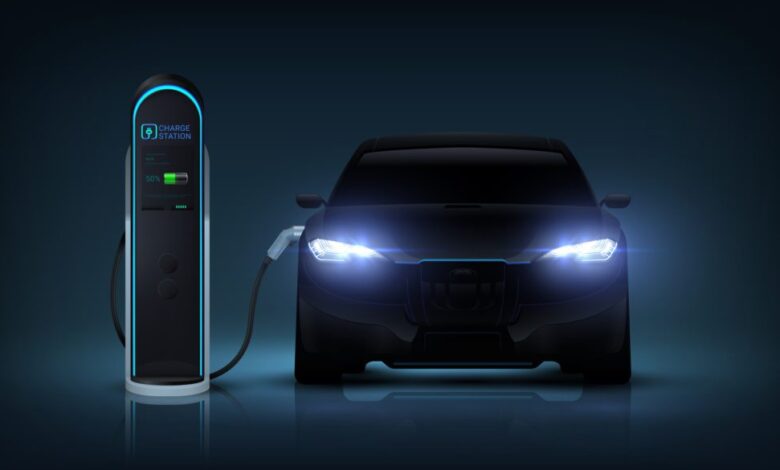How EV Charging Solutions Are Revolutionizing the Transportation Industry

A re-imagination of our transportation industry is underway. But to make it a reality, we need an EV charging infrastructure that is accessible and reliable. EV owners need a way to charge at home and work and access public chargers for long trips. This means new technologies like smart charging are critical to the success of EVs. The EV charging industry is rapidly expanding. Whether you’re in the market to purchase an EV charger or a business owner seeking to attract more EV drivers to your location, it’s important to understand how these technologies are transforming the transportation sector. EV chargers offer numerous benefits to individuals, businesses and communities. They can reduce operational costs, increase parking space and improve air quality.
Additionally, they can be used as backup power during an outage or natural disaster. As a result, the transportation sector is rapidly switching to electric vehicles. The federal government offers various programs to support EV adoption to facilitate the transition. EV Charging Stations There are already over 26,000 public charging ports, with a significant percentage being DC fast chargers that can add hundreds of miles of range in just a few hours. Over 800,000 private charging ports are installed in homes and workplaces, making the EV experience more convenient. With the increasing availability of EV charging solutions, more consumers are becoming open to purchasing electric vehicles. However, concerns over the cost and convenience of charging can still cause some consumers to hesitate. Easily accessible EV charging stations can help ease these fears and make electric vehicles more viable for many more drivers and fleets. For example, some offer incentives for customers to purchase a monthly membership, including a reduced charge per kilowatt-hour and no session fee.
EV Chargers for Homes
Many EV owners can meet their daily driving range requirements by charging overnight at home with Level 1 equipment. Depending on your local energy provider, you may be eligible for state or utility incentives to help offset the cost of a residential EV charger. Fast charging stations can top up an EV’s battery from 20 to 80 percent in around 30 minutes, significantly improving range anxiety and making long-haul journeys possible. They also make it easy for drivers to stop and charge on the road, providing more convenience than traditional gas stations. However, it’s important to note that while EV charging stations might be powered by renewable energy, their electricity still comes from the grid, which fossil fuels may power. If you want to ensure that your home’s EV charging station uses renewable energy, consider signing up for an EV charging plan with a green energy provider.
EV Chargers for Businesses
As electric vehicles continue gaining popularity, business owners must be prepared to attract and retain these customers. By installing EV chargers in their parking lots, businesses can provide an amenity that will encourage EV drivers to visit and spend more time at their locations. By choosing a hardware-agnostic CSMS which supports multiple manufacturers and hardware types, you can avoid the headache of coordinating equipment with different EV charging standards.Additionally, you can track electricity independently by putting your victron battery chargers on a dedicated meter, separate from your building or business’ power utility meter.
Additionally, by installing EV charging stations, businesses can take advantage of the growing number of EV driver incentives. This is a great way to offset the costs of installing these units. EV drivers also appreciate the convenience of having access to reliable charging stations. As a result, businesses that offer these amenities will likely see increased traffic and revenue.
EV Chargers for Public Spaces
The EV charging station is one of the most important components of an eMobility ecosystem. It’s where users charge their vehicles, so they must be reliable and easy to use. The best EV charging stations are compact and provide fast, on-demand charging. They also offer reliable communication between the charger and the vehicle.
EV owners typically charge their cars at home or in garages but are also likely to seek out public charging stations when traveling. These can be found in parking areas, workplaces, hospitals, and shopping malls.
Some EV charging stations also enable bi-directional charging, allowing EVs to function as energy storage devices and contribute to grid stability. This feature is known as vehicle-to-grid integration (V2G). Companies are investing in new production plants to bring these advanced EV charging solutions creating jobs and expanding their manufacturing footprint.
EV Chargers for Parking Lots
EV charging stations are an attractive amenity for new residents, tenants and customers. They provide a convenience that makes using electric vehicles easier and can help buildings earn LEED credits. Dedicated EV charging stations can also increase occupancy rates and revenue in parking structures or open lots. Moreover, EV drivers typically spend more time at retail locations that host charging stations. In one case, a retail chain found that customers stayed 72 minutes longer when they could set their cars. That increased customer spending translated to more sales. Schools and other community institutions can leverage State and utility programs to offset the energy company and customer costs of installing Level 2 and DC fast chargers. These incentives are available for disadvantaged communities and can cover 100% of the study cost. EV charging station installations also support the community’s transition to zero-emission transportation and enhance energy resiliency.





